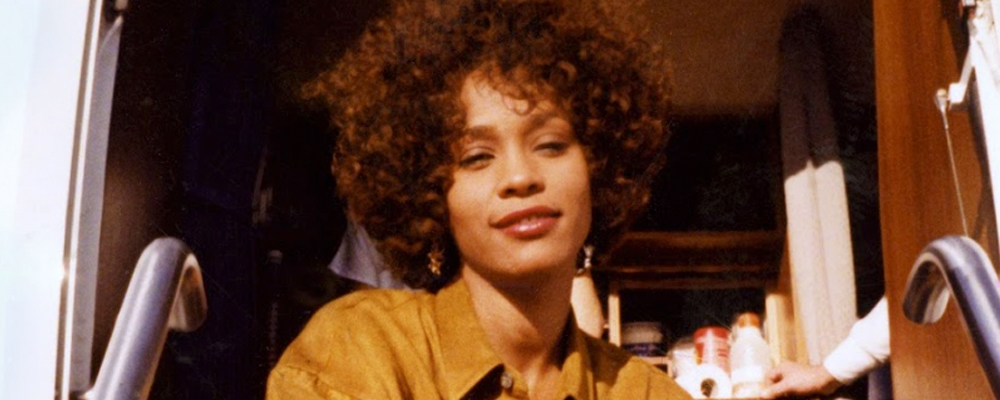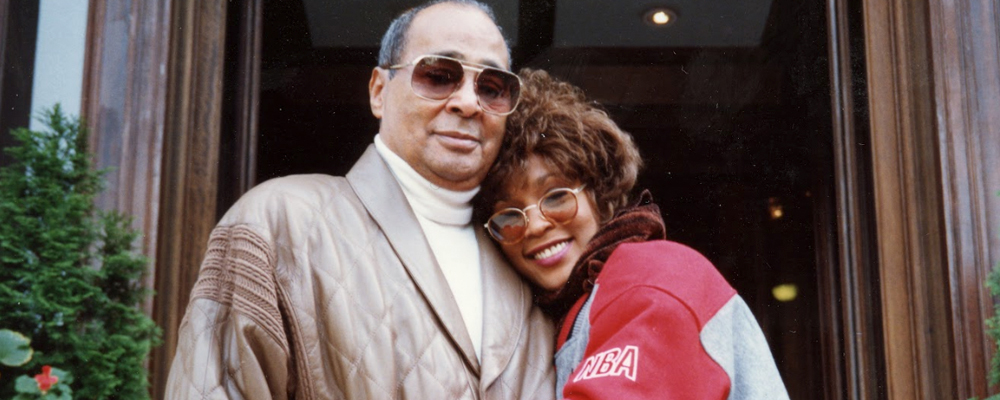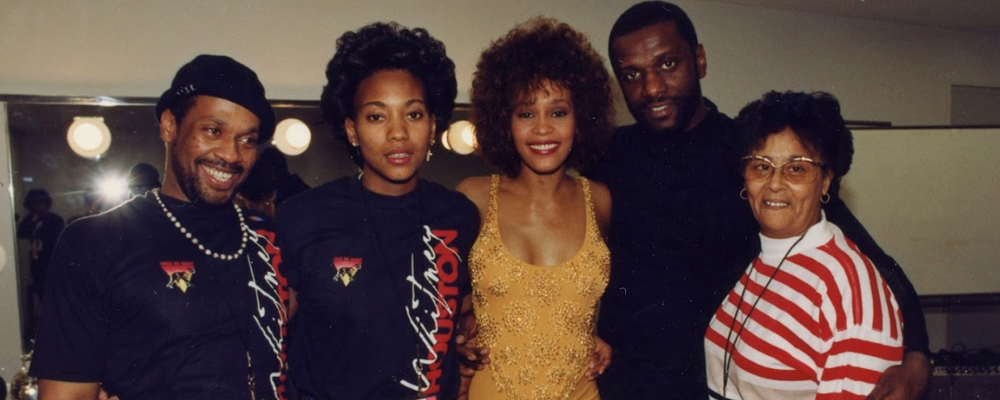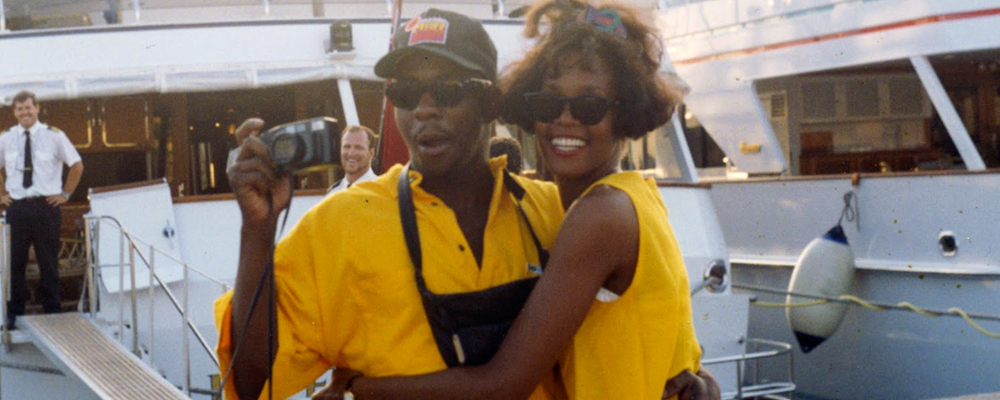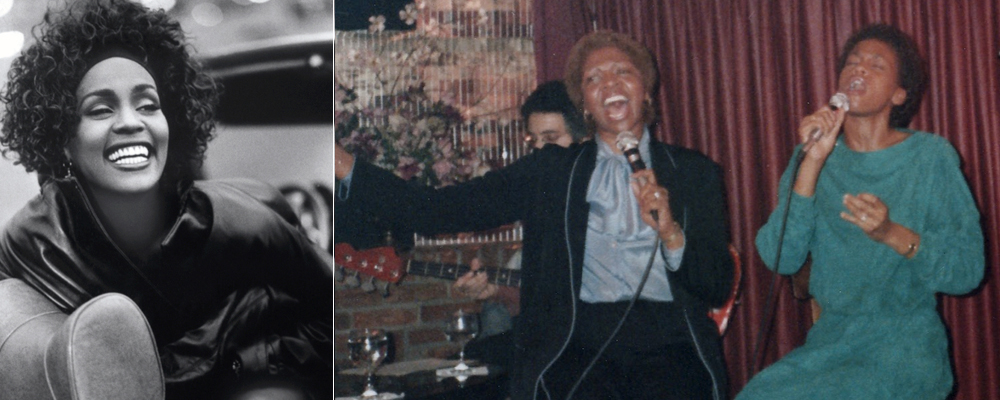‘Whitney’ Chronicles the Grand and Haunting Story of Music Icon Whitney Houston
Alci Rengifo
The incandescent rise and tragic fall of a pop icon becomes the stirring narrative of the new documentary “Whitney.” Here is the story of Whitney Houston, gifted with an incredible voice, charisma to spare and yet cursed by universal human faults. Her life almost plays like Greek tragedy and director Kevin Macdonald, who has dabbled in both fiction and nonfiction with much success, understands this. He avoids sensationalism and morbidity, instead letting Houston’s story tell itself without glossing but with much humanity.
The documentary chronicles Whitney’s life right from its unique origins. She was the daughter of Cissy Houston, a respected vocalist in her own right who sang back up for giants like Elvis Presley and Aretha Franklin, while leading the group The Drinkard Singers. As she grows older Whitney soon starts singing onstage with her mom, and it is obvious she has inherited a powerful vocal range. Whitney’s own hard-driving father, John, soon moved the family out of Newark and into the middle class suburbs of East Orange. There were tempests at home and when her parents divorced, Whitney moves to New York City and becomes a model. It is in New York that she catches the attention of top record labels, including Arista and its president, Clive Davis. Davis signs the 19-year-old talent and by the age of 22, Whitney finds phenomenal success with her first chart topper, “Saving All My Love for You.” What follows is a meteoric rise with hit after hit, culminating in six consecutive number one singles. Movie roles follow, including the blockbuster “The Bodyguard” and its worldwide hit song, “I Will Always Love You.” Yet behind all the glamor there are family traumas, a descent into the excesses of drug abuse and alcohol, buried childhood memories creeping out and an unstable marriage to singer Bobby Brown. As the hits become classics, Whitney before the world begins to deteriorate on her way to a tragic finale.
What “Whitney” does so well is transport the viewer into the life of its subject. It flows like a narrative in which we see the very development and growth of an individual. The early scenes introduce us to Whitney’s roots, from her mother’s career to the Newark’s New Hope Baptist Church where she truly developed her early presence as a vocalist. Macdonald allows us to see Whitney Houston before the fame and glory, singing in a church, under the shadow of her mother. Photos and footage are narrated over by both recent interviews of recordings of Whitney herself, detailing her experiences. It becomes clear that she was the culmination of a family of fierce ambitions and shared talents, she achieved what Cissy attempted, and even beyond. Macdonald also frames Whitney in the context of the times. Her childhood in the 60s is narrated with the political and social turmoil of the era as background, giving her story a wide scope. She was there for the aftershocks of the Civil Rights struggle, and was bred among a generation of artists marked by the tremors of their time. As the story continues Macdonald occasionally intercuts Whitney’s life with images of Reagan, the 80s, the Gulf War and the post-Cold War pop culture of the 1990s. A great artist still finds themselves actors on a much larger stage, and Macdonald hints that Whitney’s music provided part of the soundtrack of both her life and her audience’s collective, historical experience. The editing has a stirring rhythm reminiscent of Macdonald’s other documentaries, including “One Day in September,” about the 1972 Munich Olympics massacre and the brutal “Touching the Void,” about a climber trapped in the Peruvian Andes. Documentary footage and music combine to put us in the moment.
But this is also a very personal film, with naked insights into Whitney and the people around her. It is almost a surprise to discover that her sister-in-law, Pat Houston, serves as a producer. Some moments have darkly funny, candid commentary, such as a backstage home video where Whitney shares insecurities while Cissy openly mocks Janet Jackson and Paula Abdul, dismissing them as mere cosmetic pop theatrics compared to Whitney’s timeless power. Another personality emerges, that of “Nippy,” which was the nickname Whitney’s family and closest friends used for her. Whitney’s older brothers, Michael and Gary, appear through-out, openly sharing about wild times on the road, the beginnings of major drug abuse and the experience of finding themselves carried to the top of the world. Yet this is also when most unsettling details are revealed, such as Whitney’s possible sexual abuse as a child by a family member, which some of the interviewees suggest helped fuel her subconscious drive towards self-destruction later on. Her marriage to Bobby Brown, introduced through stock footage of his early, sexually charged performances, begins as a romance inspired by her own desire to rebel against her refined public image. Yet her aunts and others interviewed in the film point out that Brown actually had much in common with Whitney’s brothers. There are many interesting, psychological insights of this sort in the documentary. But as Whitney rises and Brown is overshadowed, jealousies bubble underneath, provoking his own, infamous public behavior.
Whitney Houston becomes a Shakespearean figure in this documentary, blessed with looks and talent, then consumed by inner demons and the circle of personalities around her. Her father, John, himself becomes a villainous presence, taking large sums of money at will he believes are owed to him. Cissy’s own interviews have a haunted force, because she comes across as a strong personality who gave birth to a major artist, yet was powerless to stop her downfall.
What will always last beyond the scandal or infamous photos of rooms strewn with drug paraphernalia, is the music. Macdonald uses Whitney’s songs as the surging undercurrent of the entire documentary. He finds rare footage of the early Whitney showing off her vocal range, including an early TV performance where she is introduced by Clive Davis. Famous tracks like “I Wanna Dance With Somebody” take on a special resonance and meaning. Macdonald goes back and covers iconic moments like the 1991 Super Bowl performance of “The Star-Bangled Banner,” with musical director Rickey Minor sharing the quick, masterful way in which Houston listened to a prep track and in no time knew how to approach the anthem. Along with the personal revelations about her vivaciousness, sex life and sad, drug-fueled decay, Macdonald never forgets that Whitney Houston was an artist and makes sure to celebrate her craft.
The final moments, as Whitney publicly begins her descent, like a Venus who rises and then destroys herself, are not judgmental, but somber. Brown refuses to discuss any drug use on camera, while everyone else from friends to producers and bodyguards, speak with the kind of surrendered tone of people who witnessed a personal tragedy they couldn’t stop. When Whitney meets her end in a Beverly Hills hotel, the tone is of a life lived fast, losing its glow. “I don’t think there was any foul play,” Macdonald recently stated to Entertainment Voice, “I started interviewing everybody on what happened on that day. But the movie is not about Whitney’s death, it’s about her life.”
Pat Houston recently told Entertainment Voice, “Whitney herself started filming, we knew that she wanted to do a documentary…we can sit and we can watch home videos, it doesn’t matter, to see her on screen, it’s all the same, she’s not here. Right now we want to put things to rest, for closure.” It is this approach which gives “Whitney” an engaging force, but a special melancholy as well, because it does feel like a full reflection on a life lived. Here is an icon, warts and all, glowing on screen and in private throwing a tantrum or expressing a mean thought. This documentary celebrates the life of an icon, while revealing how even legends are cursed with the fragility of being human.
“Whitney” releases July 6 in select theaters.

